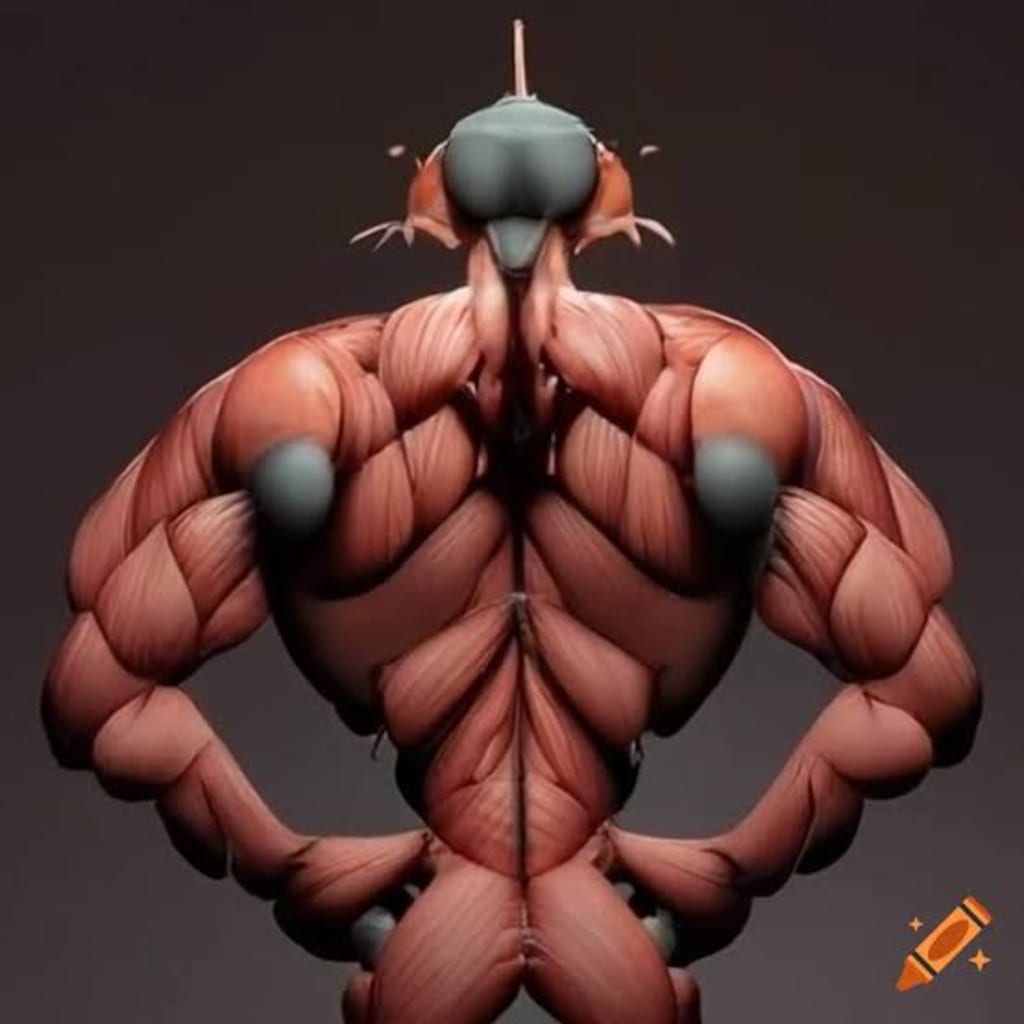
Ants, I love them. Not in the sense of having them swarm all over me, my food, or my belongings. I actually can't stand that, and once in a while, I quash some that stray onto my skin. That's not personal, just an act permitted by nature to check their proliferation. However, I have come to admire the way of the ants. Every aspect of their life intrigues me. I have begun to see beyond the ant as a nuisance, and instead of rushing to terminate them, I prod them on their way, even removing obstacles for them.
I know there are classifications and strata within the ant kingdom, but that's not what I'm about here. It's the simple living ant we come across daily that I intend to muse about. Ants are hard workers. I doubt they take time to sleep, for if there's food to be made or gathered, work to be done, they just do it (methinks NIKE stole their maxim for their brand). In doing this, they understand the power of communal work. Though they can carry goods bigger and weightier than their individual sizes, ants less busy or without loads easily help relieve another that's heavily laden without expecting anything in return.
You cannot ascribe selfishness to the ant, as individual ants, when they come upon an opportunity like a cube of sugar, nibble a bit off, not to go hide in a corner to indulge but rather go back to the "clan" to share a taste of the "find" or discovery. This behavior isn't what you'll routinely find with humans, even when the one who found the opportunity doesn't possess the requisite technology or necessary acumen required to fully exploit it.
In going about their daily business, you'll find ants are fearless executors, focused, and unperturbed by stumbling blocks along their path. Even when the stumbling block is a human or the occasional lizard. Danger surely must be secondary in their pursuit of their means of livelihood. They would gladly walk into the midst of danger if it lies on their path. Many will consider this act foolish, but many a time, they've succeeded in their endeavors while staring at danger right in the face.
Many humans have failed to kinetize their potentials just because they "smelt" danger, even when, in actual fact, there was none. Ants aren't quarrelsome in nature. I find it rather interesting when they come in contact with one another on a single path, to and fro. You'd think they were blind and didn't see the oncoming traffic, but later, you'd find they take some time engaging in what a friend described as "kissing," though, for me, it looks more like sharing notes on what lies ahead for either traveler.
This kind of cooperation is rarely exhibited by humans in what they call "trade secrets," which they fear may be leaked to the opposition. I am reminded of the many times I'd had to be delayed in traffic just because "intelligent" Homo sapiens refused to allow each other the "right of way" on very busy roads at rush hour. If only they could learn from the ant.
The ant is a shrewd business-inclined creature, not a spendthrift but a huge saver, always storing for the possibility of winter, for aridity, and the season of drought. It undertakes this business of storing with all sense of responsibility, even when unsure of its mortality. Most humans live for now, further endangering the certainty that today's savings and planning could enable for a bountiful tomorrow because they feel they don't know what "tomorrow will bring."
There's more to the ant than the few points postulated herein. Maybe you'd like to share, but I guess you cannot but agree with me that we surely do have a lot to learn from these tiniest of macro-creations. They've mastered what man hasn't been able to employ for ages.
Ants have a highly organized social structure, with different castes performing specific roles. Worker ants, the most abundant caste, are responsible for foraging, caring for young, and maintaining the colony's infrastructure. Soldier ants, with their enlarged heads and mandibles, defend the colony from predators. The queen ant, the largest ant in the colony, lays thousands of eggs daily, ensuring the colony's survival.
Ants communicate effectively using chemical signals, known as pheromones, to convey information about food.
One of the most impressive aspects of ant colonies is their social hierarchy. With different castes performing specific roles, ants have evolved a highly efficient system for managing their colonies. From the queen's laying of eggs to the workers' foraging and caring for young, each ant knows its place and works together for the colony's success.
Ants also possess remarkable navigation skills, using chemical trails and landmarks to communicate and find their way around. Some species even exhibit complex behaviors like farming, with leafcutter ants being a prime example. These ants cultivate fungus for food, creating intricate networks of underground gardens.
In addition to their impressive social structures and navigation abilities, ants have evolved remarkable physical adaptations. Some species can lift objects several times their own body weight, while others have developed specialized mandibles or stingers for defense.
As we continue to learn more about ants, we're reminded of the importance of cooperation, hard work, and adaptability in achieving success. These tiny creatures may be small in size, but their impact on our ecosystem and inspiration for human innovation are enormous.
About the Creator
Wale
I'm a sequacious polymath
Enjoyed the story? Support the Creator.
Subscribe for free to receive all their stories in your feed. You could also pledge your support or give them a one-off tip, letting them know you appreciate their work.






Comments
There are no comments for this story
Be the first to respond and start the conversation.